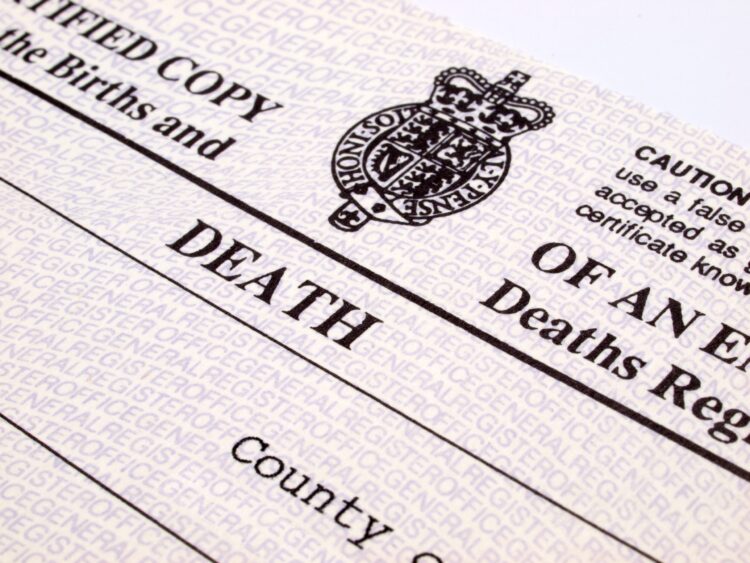By James Simons And Victoria Mckeon-
The total number of deaths with COVID-19 on death certificates includes suspected cases, the Office of National Statistics the ONS has confirmed.
Over 68,000 deaths based on the latest reports on death registrations published on Tuesday by the Office for National Statistics (ONS) show 59,549 deaths involving Covid-19 had occurred in England and Wales up to November 6, and had been registered by November 14. However, the overall number of recorded deaths where COVID-19 was mentioned on the death certificate includes suspected cases.
The Office Of National Statistics told The Eye Of Media.Com that in a number of cases, medical professionals had to use their judgement in calling COVID-19 cases even where testing may not have taking place. This was more common where a patient had died before being tested , but was reported to have shown symptoms of the virus. In many of such cases, a doctor would have had contact with those patients, but not in all cases. Some cases involved patients who had died before seeing a doctor, but whose family members described symptoms that fitted those of COVID-19.
The outrageous conclusions have been defended under the grounds that the government would not have wanted to leave out any reasonable cases of COVID-19 deaths were the opportunity for testing did not present itself on time before the deceased passed away. Some medical experts involved in an extensive assessment of COVID-19 assessments have said that what looks like an ingrained error in the statistics are actually reasonable, but are criticising other aspects as they gather their thoughts.
They say it is correct for doctors to use information gathered from those close to medically untested individuals who died after showing symptoms similar to that of COVID-19. The few doctors we have spoken to about this are divided on the topic. There are many more to be involved in this research, but the most common feature so far is an observed fear to speak up and be heard.
Hospital Access
Many patients with other illnesses were unable to access hospitals during the first lockdown when hospitals were full. In some cases, patients were too scared to go to hospitals and died at home or in care homes. Determining the presence of COVID-19 in such patients were done by doctors, some of whom are anonymously talking to this publication.
Some writers and members of The Eye Of Media.Com’s thinktank have began a close examination and analysis of COVID-19 statistics, in order to assure our readers of a thorough and balanced assessment, considering how overwhelmed and busy the Nhs and governmental departments are. Professionals from some of the Uk’s most elite universities are involved in some of the discussions to participate in a separate broad analysis of the statistics.
Prompt And Accurate Certification
Under government guidelines, ”prompt and accurate certification of cause of death is essential to enable the deceased’s family to register the death. This provides a permanent legal record of the fact of death and enables the family to arrange disposal of the body, and to settle the deceased’s estate”
A doctor who attended the deceased during their last illness has a legal responsibility to
complete a MCCD and arrange for the transmission (electronic recommended) of it to
the relevant registrar as soon as possible to enable the registration to take place. This
duty may be discharged through another doctor who may complete an MCCD in an
emergency period.
The guideline states that in an emergency period, any doctor can complete the MCCD, when it is impractical for the attending doctor to do so. This can occur when the attending doctor is self-isolating, unwell, or has pressure to attend patients, guidelines state. The problem with the allowance of any doctor to certify a death with COVID-19 relate to concerns about the level of expertise of the doctor, since doctors don’t have the same level of knowledge and expertise.
There is also the question of whether some doctors could be reckless enough to assume the presence of COVID-19, especially in care homes where a number of COVID- 19 patients were released from hospitals. Some critics fear there may have been a presumption that COVID-19 spread would have been so inevitable that any symptoms close to those of the virus could easily have been included on the list.

